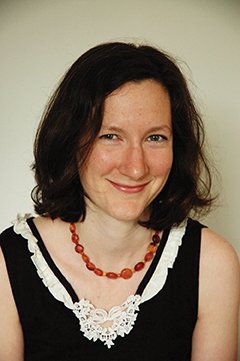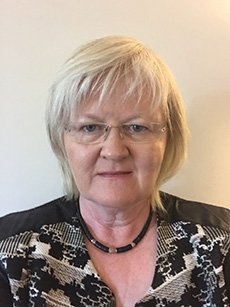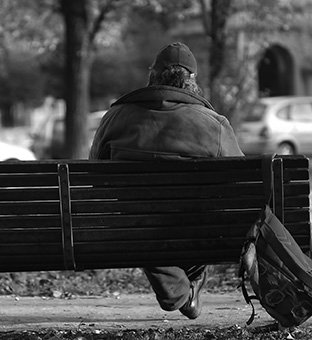The health needs of the homeless
community are unique and changing.
David
Lynch
investigates present policy and service provision
Health and housing are currently big political topics. An exit poll conducted by Ipsos/MRBI during the recent general election found that 32 per cent of people said health was the most important issue impacting their vote. In second place came housing/homelessness, at 26 per cent. Both these issues were substantially ahead of the next topic, the pension age, at 8 per cent.
No matter what Government comes to power in the coming weeks or months, it will face an expectation among voters that action needs to be taken on these often inter-related concerns of health and housing.
According to Focus Ireland, there were 9,731 people homeless in Ireland in the last week of 2019. This figure includes adults and children.
“The number of homeless families has increased by 280 per cent since December 2014,” according to the Focus Ireland website.
“More than one-in-three people in emergency accommodation is a child. However, this number does not include ‘hidden homelessness’, which refers to people who are living in squats or ‘sofa surfing’ with friends.”
The figure also does not include people who are sleeping rough. Focus Ireland said in November, there were 92 people sleeping rough in Dublin, with an additional number in the Night Café (in Merchants Quay Ireland), without a place to sleep.
The rise in homelessness has led to greater need for specific health services.
“The number of people accessing services and availing of health interventions has risen in line with the increase within the homeless population,” a HSE spokesperson told the Medical Independent (MI).
“There are a range of services that the HSE provides to homeless people, including ‘in-reach’ health services in emergency accommodation settings, care and case management and intensive addiction and mental health supports… [and] outreach health and harm reduction services to homeless people and rough sleepers.”
Change
Dr Austin O’Carroll is a Dublin-based GP and founder of Safetynet Primary Care. This initiative began in 2007 as a network for health professionals and organisations working to improve healthcare access for homeless people.

Has Dr O’Carroll witnessed any major changes in the health needs of homeless patients?
“The main groups of people then [in 2007] was in two groups really,” Dr O’Carroll told MI.
“People who had drug addiction problems, who were very difficult to get out of homelessness; that was about 80 per cent. And then we also had people with mental health problems who were homeless, which was about 20 per cent.
“What we are seeing now is still a large group of people with drug addiction. The recession caused a lot of people to fall into homelessness because of drug addiction.”
However, the wider housing crisis has influenced the nature of some new cases.
“We are seeing a new group of people,” said Dr O’Carroll.
“People who are homeless for financial reasons. Their main issues are support while they are out of the [housing] net and also having to deal with the stress and anxiety of becoming homeless. We still have the other two groups, but we [also] have this new group.
“We try to encourage them to stay with their own GP, as we think they really need to maintain links with [their] community. So we wouldn’t see them that often, because the times that we would see them, we would refer them back.
“But we would see the odd person who has somehow lost their link with their GP.”
Dr O’Carroll added that they occasionally see people “who would end up in these situations who would not have had a drug problem prior to becoming homeless.”
Dr Clíona Ni Cheallaigh is Consultant and Clinical Lead for the Inclusion Health service at St James’s Hospital, Dublin (see panel 1). She told MI while the health needs of the homeless community have not altered much over recent years, the significant rise in homelessness in general has meant some changes.
“My background is infectious diseases and I would have done a lot of work looking after people with HIV,” she said.
“So 10 years ago when I started, there were no rough sleepers with HIV. If they had a chronic disease like HIV, they would always get a well-supported hospital [bed] if they were homeless, and very few of those patients were in fact homeless.

“But with the numbers [of homeless patients] having increased so much, you can imagine that has predominately impacted on people with other [health] needs [such as HIV and other disease].
“The impact of homelessness on people with poor health is massive. We see a lot of people becoming very unwell in a way that they wouldn’t if they were appropriately housed.”
Dr Ray Walley is a GP in Dublin’s north inner city and a former President of the IMO. He and other GPs have witnessed the consequences of the housing crisis among their patients.
“Over the last number of years I, like other GPs, have many patients who unfortunately are homeless, living in refuges or hubs or hostels or hotels, etc,” Dr Walley told MI.
Increase
“I have seen an increase in mental health issues and addiction issues in this population of people.
“If they are sick, it is difficult to continue to engage with the health service without a fixed abode. This adds to the health pressures on already sick patients.
“The worst stresses are on children. From the stories I know, our school services are phenomenal in trying to support those children. They must be commended for it.”
It is not only inner cities where the impact of the housing crisis is felt among patients. It also affects those living in rural Ireland and in the suburbs of the capital.
“The most significant change I have seen over the past 10 years is in the volume of families with young children being in the homeless system and the devastating effect this is having on children’s mental health,” Dr Edel McGinnity, a GP in Mulhuddart, Dublin 15, told MI.

“I am now seeing teenagers who were in homeless accommodation when they were younger presenting with serious mental health problems, despite being in stable housing now.
“Given a lot of recent research on the impact of adverse childhood events on future mental and physical health, I expect there will be many serious consequences for these children as they grow up.”
Contact
Echoing Dr O’Carroll’s points that it is important for homeless patients to maintain contact with their local GP, Dr Walley noted that many “receive their healthcare in an acute setting and unfortunately seem to continue to access much of their care there”.
“It is of the utmost importance that these acute care needs are met. However, equally it is of the utmost importance that such patients be facilitated in registering with a specific GP who they get to know.
“The strength of general practice is in continuity of care. It is stabilisation of the peripatetic existence that stabilises people, including stabilisation of healthcare access in the normal circumstances of their community GP.”
From his experience with Safetynet, Dr O’Carroll noted that patients requiring methadone treatment outside Dublin sometimes find it difficult to source a GP.
“I also see people coming up from the country becoming homeless because they can’t get methadone treatment locally,” he said. “I do think there needs to be services for methadone living in the country.
“[More] GPs in rural areas should be providing treatment for patients receiving methadone.
“There are a number of patients who come up to Dublin for treatment because they can’t get local treatment. If they had a local GP who offered treatment, they wouldn’t have ended up leaving their home town and becoming homeless.”
Praise
However, Dr O’Carroll is also clear that there is much to praise in the current health services provided to the homeless community by the HSE and others.
“The services are very good; I’m not saying they aren’t. We just need to be quicker. So if someone is identified for addiction, they need to get onto treatment, then into a home, and then I think we could have much better success rates,” he said.
“A lot of it, I think, is supporting initiatives that have been developed already, so for example, there is Inclusion Health (see panel 1), which is both in the Mater and St James’s Hospital, which is fantastic. I think we have got a fantastic service that has developed here, [we need to] continue to support and expand them and develop them.”
Navigating
Those working in the front line of services such as Merchants Quay Ireland (MQI) agree that some reforms are needed.
“With Merchants Quay Ireland clients, the main health challenges we see are those closely associated with homelessness: Respiratory illness, mental health, and wound/abscess care,” an MQI spokesperson told MI.
“Beyond those illnesses, one of the chief health challenges for someone who is homeless is navigating a system that is not set up to cater for them. The lack of a fixed address creates barriers to accessing primary healthcare services and, as a result, people who are homeless are far more likely than the general public to present at [emergency departments].”
The MQI spokesperson added: “Our advice to doctors and healthcare workers is to try to understand the reality of homelessness day-to-day, in order to best support people who are homeless. There is a need to develop a model of healthcare that is delivered in homeless settings. At MQI, we have a doctor, nurse, dentist, and mental healthcare on-site, alongside basic supports like food and showers.”
Panel 1
Inclusion may be the solution
The Inclusion Health group is based in St James’s Hospital, Dublin, and was first piloted from August 2016 until August 2017. It is now also based in the Mater Misericordiae University Hospital, Dublin. It is a multidisciplinary team made up of different health professionals (including doctors and nurses), which provides specific healthcare for the complex medical and psychosocial needs of patients who are homeless, asylum seekers, prisoners, Travellers and others.
According to The Guardian, (which reported on the work of Inclusion Health in 2018): “St James’s has the first hospital-led inclusion health team in the world. This is important because homeless people are five times more likely to attend [emergency departments] but up to 40 per cent leave without being seen. They are 3.2 times more likely to become inpatients with longer stays and more readmissions.”
When homeless patients present at St James’s emergency department (ED), their arrival is flagged in the system and their specific needs taken into account.
“I think they [homeless patients] now see the hospital being a friendlier place to come to possibly,” Dr Clíona Ni Cheallaigh, who is Consultant and Clinical Lead for the Inclusion Health research service at St James’s Hospital and an infectious diseases and internal medicine physician, told MI.
“We would listen to them and understand what they are going through.”
The pilot at St James’s Hospital was among the first of its kind internationally and is led by Dr Ni Cheallaigh and nurse Ms Ann Marie Lawlee. It has reduced the rates of admission, readmission and length of stay of homeless patients. “There are lots of challenges,” said Dr Ni Cheallaigh. “Funding, yes [is an issue]; we are all on temporary funding pieced together from here and there.”
Both of the consultants working in the project are funded as a further two-year pilot by the HSE. The pilot comes to an end in April next year. “I know it’s the same story throughout the health service, but we need more bodies to do what we need to do,” she added.
An All-Ireland Health Inclusion group has been established with the hope of extending the service across the country.
“We are looking for someone to… administer it and co-ordinate it, because it is difficult with us all doing other jobs,” said Dr Ni Cheallaigh. “The nurses and midwives inclusion health group meets monthly or so, and there are subgroups.
“There is an inclusion health research group and we meet about every two months, with researchers who have interest in inclusion health. We got some funding from the Health Research Board (HRB) for a research prioritisation exercise in May. So we will get together as a community and think about what are the questions that are important to research. That is one of the nice things about this area; people are very collaborative in general and looking to support each other.”
Community
Dr Ni Cheallaigh added that the response of doctors to the service has been “mostly really positive”.
“I think people see that there is a need for special skills. I would usually use geriatrics or palliative care-type analogies for doctors. Probably geriatrics is the closest one.
“In the sense you have a group of people [homeless patients] who have really complex, usually multiple chronic medical conditions, complex psychosocial issues who need a bit of specialist interdisciplinary care to be efficient and to give them good outcomes.
“You have a team in the hospital that mixes in with teams in the community. We do lots of education as well [with nurses, social workers, doctors, medical students]. Anyone who will listen, we will talk to them.”
Inclusion Health has “huge links with GPs”, she added. “We work very closely in Dublin with Safetynet Primary Care and others. We have a meeting once a week in Merchants Quay, where the Safetynet GPs come to where we discuss complex cases, along with nurses from Merchants Quay and from other agencies.
“There, we try to work out how we manage the ones we are all worried about and we actually learn from each other from doing that. Everybody has areas that they know a lot about. I’ve certainly learned a lot from others.”
This is an area that requires significant interdisciplinary support, she added, because of the complexity involved.
“Homeless people have really high health needs. A lot of this is preventable. If you were able to get control of their diabetes, or their COPD at an earlier stage, they would not have got sick to the point of needing to come into hospital. When they do present to ED, they are normally pretty sick and need admission for quite a long time because of the complexity of their illness. I think when we started, people were thinking that homeless people were coming into hospital just for bed and breakfast, but that is definitely not the case. When they are here, they are really sick.”
Visit https://inclusionhealth.net
Panel 2
A new political era?
A new Government will be formed in the coming weeks or months, and initiatives to deal with homelessness and the health needs of the community will form part of new policy discussion. Asked what should be the priority for a new Government in this area, Dr Edel McGinnity said any new administration should recognise that “people who are homeless are entitled to services, especially psychiatry for adults, and HSE children’s services for children, and [they] should not be excluded because they don’t have a fixed address.
“Psychiatry services in particular are very rigid about catchment areas and permanent addresses, and this results in the most vulnerable often being unable to access a critical service.”
Dr Ray Walley said he believes that “the most significant priority” for a new Government in this area “has to be housing in accommodation where [people] have privacy, have the ability to cook their own food, where children have room to play and study, places where families have room to eat and talk together like normal families do. This is now at emergency proportions for those people.”
When it comes to measures a new Government could take in regards to homelessness and health, “there are several things,” said Dr Clíona Ni Cheallaigh. She said people who are socially excluded “are the people who lose out when our State does not provide good joined-up, well-resourced care. “If there is a shortage in housing, they are the people who will end up homeless; if there are issues around funding for child and adolescent health, it is their children who need the care and don’t get it; if there is a shortage of funding in intellectual disability placement supports or assessments, this is the same group of people who will suffer from that.
“We would see very much the impact of Government policy on the people we work with. Obviously, recently the housing crisis has had a massive [impact]. None of us can overstate the impact that homelessness has on people’s health. People who end up homeless are usually the people who were already quite vulnerable or unwell.” She added that “when services are not integrated, when we are not all talking to each other and when the budget is separate, that impacts the most on the people we work with.
“We would very much call on any new Government to, I suppose, recognise the impact of extreme poverty and disadvantage on people’s health.”
For his part, Dr Austin O’Carroll said that a multi-faceted approach to policy is needed. “The first main issues [for a new Government] obviously is that housing is key, in other words you cannot improve health without improving housing,” he said. “I’m a particular fan of social housing but my expertise is health, but I think there needs to be some form of accessible housing, [and] also rent controls in some form.
“Secondly, in terms of health issues, I think that drug addiction is still a significant arbiter of health problems. So for example, I saw today three people who came seeking treatment for drug addiction, two of whom were young women who were sleeping out on the street, separately, when you imagine the biting [cold] temperatures there were last night [early February].
“So, I personally think that we need treatment options that include quick access to methadone. At the moment, it can take a while, three, four, six weeks to get people on methadone.
“The third factor is, there needs to be better access to mental health services for people who have drug addiction and depression, or anxiety or schizophrenia. So that we need more mental health services.
“It includes access to psychiatry, but it is more than that. It includes mental health services, support workers, it includes access to daytime programmes for people with mental health problems.”
Dr O’Carroll also believes that a policy of drug decriminalisation, similar to the model currently deployed in Portugal, should be considered by the new Minister responsible for drugs policy.
For those in Merchants Quay Ireland, housing is a key element in health. “In terms of priorities for the new Government, we would hope to see continued support for the Housing First programme, which provides rough sleepers with housing, alongside wraparound supports — including medical support — and has proved successful thus far,” a spokesperson said.
“We would also like to see expanded mental health support for people who are homeless.”












Leave a Reply
You must be logged in to post a comment.